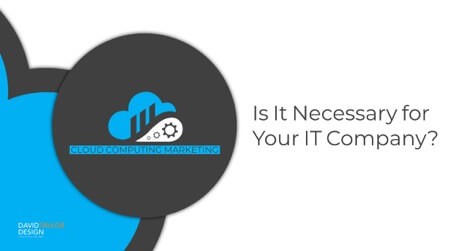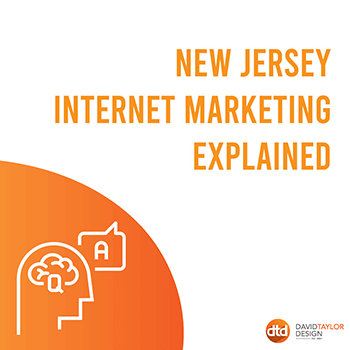

Furthermore, with cloud computing marketing, maintaining an IT infrastructure becomes obsolete. This is because the cloud infrastructure adapts to any requirements for the solution that the marketer starts.
Cost savings
Cloud computing marketing offers extensive savings that seriously cut back costs for marketing strategies. In fact, as an IT company, cloud computing marketing strategies can save money in several areas, such as energy consumption costs, reduced time delays, and no cost of system upgrades depending on what is included in your contract. The most impressive area where savings applies, however, is within the IT infrastructure itself.
As mentioned earlier, with cloud computing, maintaining an IT infrastructure becomes pointless as solutions are only purchased as they are needed for your campaign, etc. Once the service is no longer needed, the marketer simply turns off the service in question.
Ease of accessibility
Accessibility is another advantage of using cloud computing marketing. With marketing for IT companies, ease of accessibility should be a major concern, and for the client, there is no difference. For so many companies, accessibility is an Achilles heel that can cause major delays and cost money. When it comes to the cloud, however, accessing internal databases or even an online mailing system will produce no issues regardless of whether a smartphone or tablet are used.
The best part about this type of accessibility is that security is never compromised, which is a major concern currently. With companies such as Sears, Kmart, Delta, and Best Buy experiencing data breaches in 2018, security at any level is important, especially with confidential client names and contact details on hand.
Security
As a marketer, security should be the first thing on your mind. Although it may seem as though security may not have such a negative impact on marketing, it is crucial for marketers to take this seriously. With client lists and other client details, personal company information, and other private information available, security is priority number one for most marketers. And since the cloud is shared and internet-based, it may produce “red flags” for some marketers new to the platform.
From data protection to identity management, security is a significant area where all companies should invest. Above, we mentioned a few major companies that have adopted the cloud computing marketing model, and these companies understand the importance of strong data security to protect their public image and personal client information. It turns out that according to Clutch’s Annual Cloud Computing Survey when it comes to the cloud, almost 70% of businesses surveyed have more confidence storing data in the cloud instead of a legacy system. This shows an overwhelming amount of support for cloud security. Furthermore, the survey results show that while there are some concerns with cloud security, they are mostly since most businesses on the cloud utilize IoT services. This puts companies at risk of being hacked due to security vulnerabilities on these devices. While upgrades to security could prevent these hacks from occurring, most people won’t since certain devices aren’t always considered hackable.
While there are some risks with cloud computing marketing, mostly in security, benefits such as savings and accessibility are definitely reasons IT companies should consider cloud computing marketing. In fact, even the security risks as compared to other options are far less serious. Cloud computing marketing has grown substantially over the years, and businesses are certainly taking notice and adopting this model. It is important for businesses to adopt this now and work through the changes as the cloud continues to evolve, rather than jumping on the bandwagon after competitors. Learning how to market cloud services could be a saving grace for any IT company.
Now that you know how essential cloud computing marketing is to your IT company, let’s discuss some marketing strategies. If your business is having trouble developing a cloud computing marketing plan, don’t worry. You’re not alone. A lot of technology companies find that selling their savvy solutions might be harder than actually developing them. It takes work to create an effective cloud computing marketing strategy. You need to show potential customers the value of your services.
Successful technology companies invest in their marketing department to spread the word and promote brand awareness. After all, how will prospects know the benefits of your products if they don’t even know you exist?
Even if your business isn’t ready to fully immerse itself in marketing, there are a few steps you can take to get started.
Here are our top 5 tips when it comes to cloud computing marketing strategies
1. Know your competition
One of the first steps when creating a marketing strategy involves researching your competitors. This will uncover invaluable insights your team can use when promoting your services. Just search online using keywords that align with your business, and see what brands pop up. Take a look at their ads, landing pages, and even their checkout processes. Conducting this type of research gives you the opportunity to identify your strengths and weaknesses while preparing your sales team to compete.
2. Identify target customers
No “go to” market strategy for cloud services can begin without defining the ideal client. Knowing your customers means you can personalize product offerings, create targeted promotions, and secure more sales. Think about the demand for cloud services in your market, available cloud service options, and who currently uses these products. Then you can pinpoint any areas that have room for growth.
Just knowing your target audience and their needs will give you a leg up in any marketing strategy. Don’t waste your time on those who have no use for cloud services.
3. Differentiate your business
With so much competition out there, your cloud services need to stand out. Show that you’re more than just a vendor, and instead position your business as a quality IT partner with innovative services. Perhaps you offer unbreakable data encryption and security features that can’t be found anywhere else. Or maybe you provide excellent customer service and support that are on standby 24/7 should any issues arise.
Offering an accessible IT team with fast problem-solving skills puts clients at ease. Look at your competitors, and fill in the areas they lack.
4. Emphasize cloud benefits
Cloud marketers have the responsibility of educating potential clients about how the cloud can benefit them without focusing too much on its complexities. Boast about how the cloud offers agility for businesses and their employees. It increases productivity by putting any technical difficulties in the hands of a qualified team of outside experts, instead of distracting employees.
Cloud services also provide automation, so customers don’t have to deal with any hassles. Automatic updates give clients the peace of mind knowing they have the latest technology. When in doubt, stress how easy it is to use your cloud computing system.
5. Be clear about pricing
Being upfront about costs is important. Subscriptions, maintenance, repairs, programming, and support should all be carefully explained, so customers know exactly what they’re getting. During the sales process, emphasize the simplicity of your prices instead of weighing down clients with nonessential details. Remember to highlight the essential features that you offer and why they only serve to enhance the customer experience.
Your cloud computing marketing strategy doesn’t have to be complicated. You have to learn how to market your stellar solutions in a way that attracts and retains customers. Knowing your competition, understanding your audience, being unique, showing expertise, and offering transparency will give you the jumpstart needed for success. Why wait any longer to get started on your cloud computing marketing strategies.
If you have any questions about developing marketing strategies or if you would like to learn more about how cloud computing marketing is useful for your IT company, please reach out to us. Our team is happy to help.

